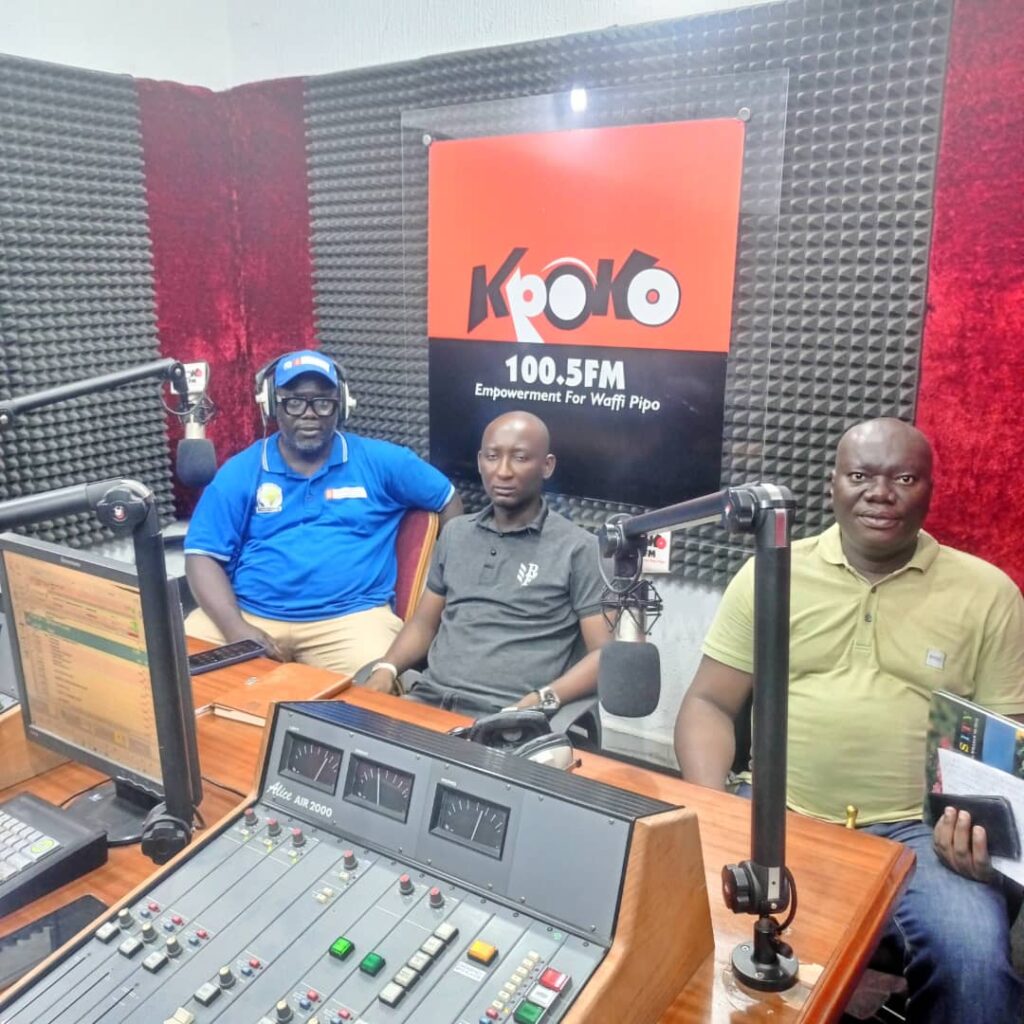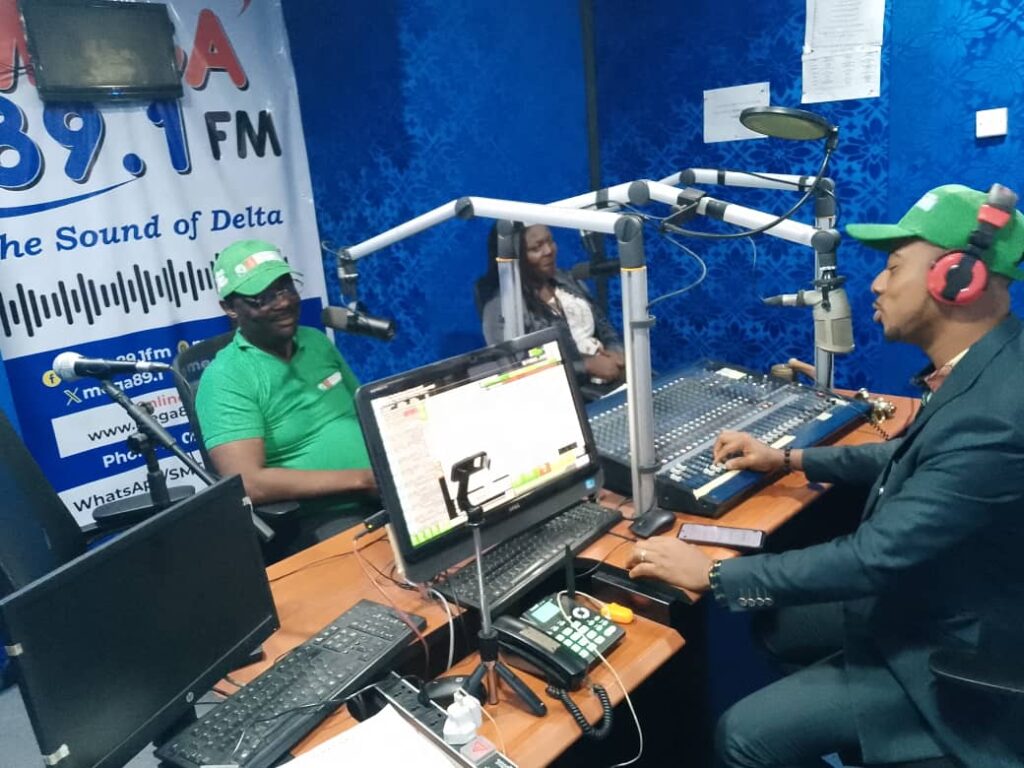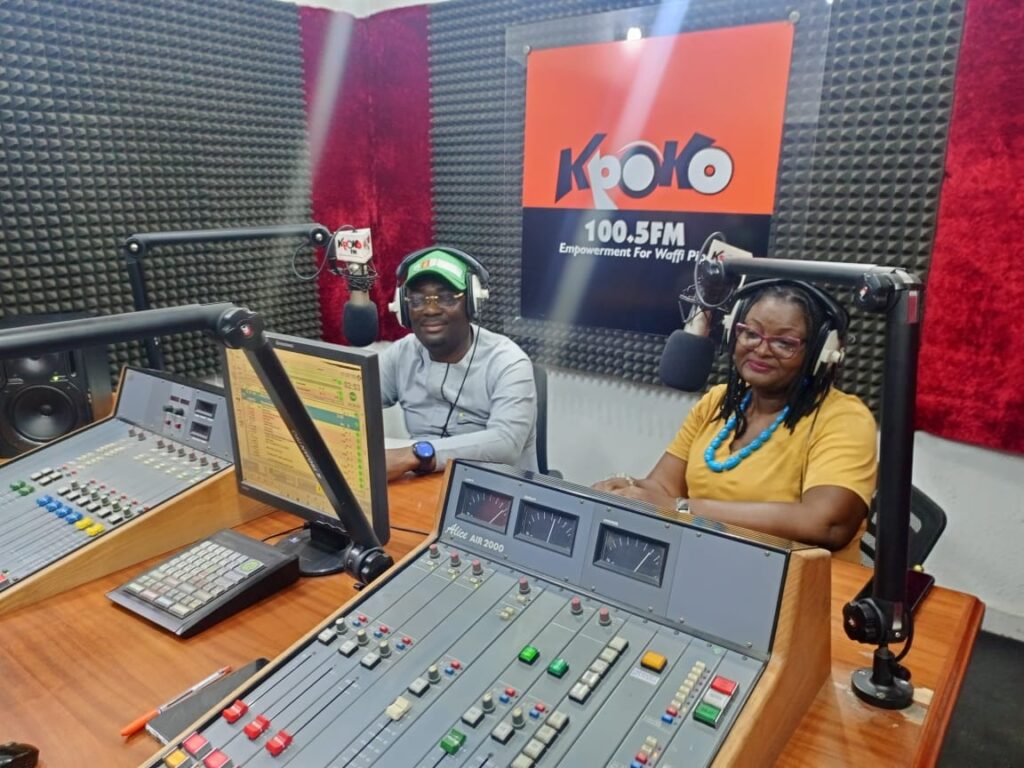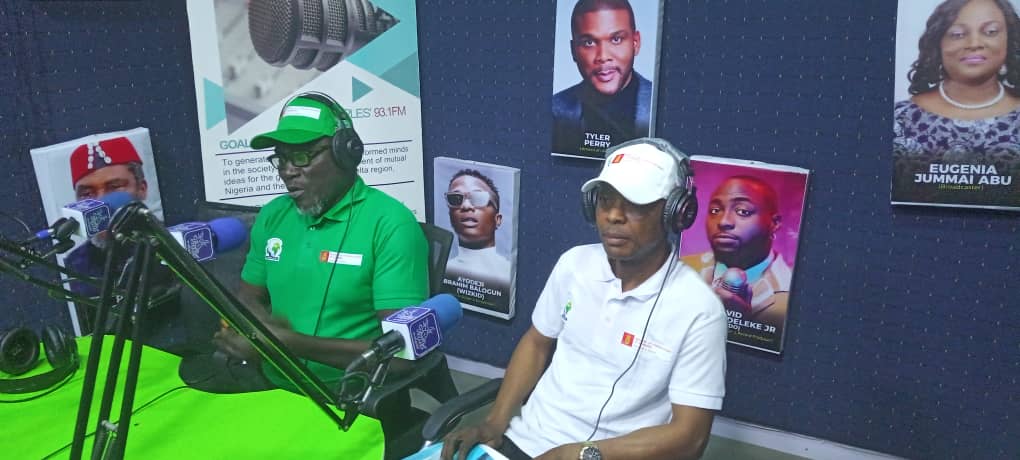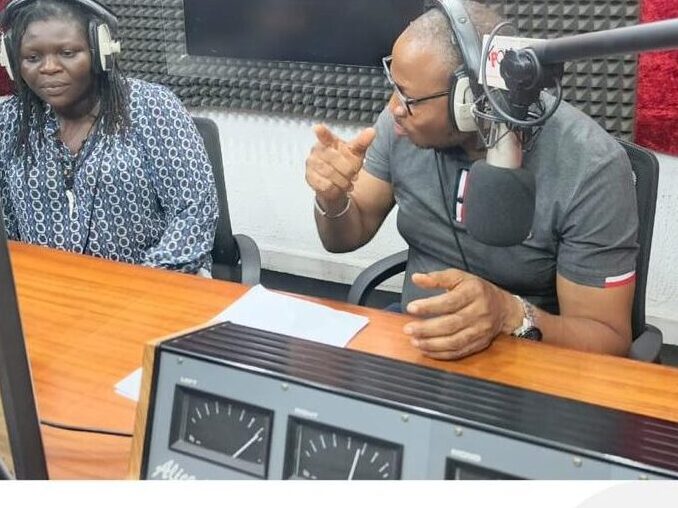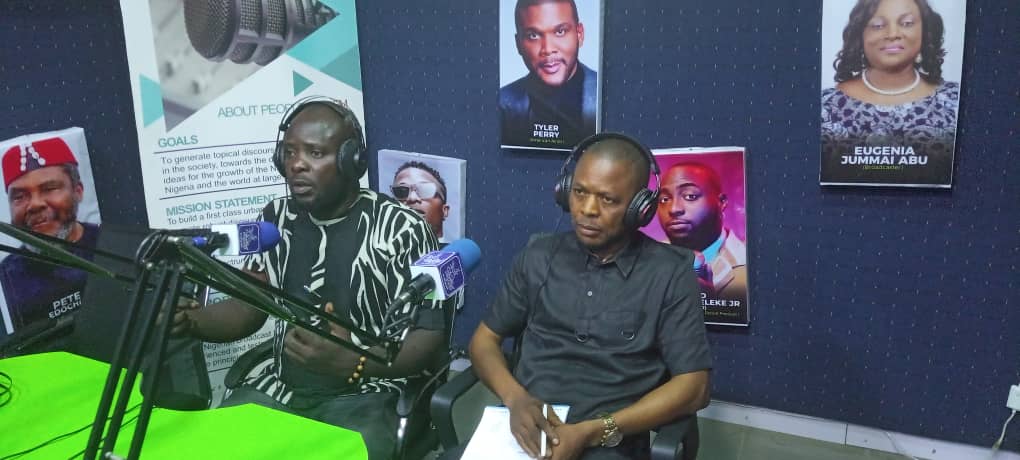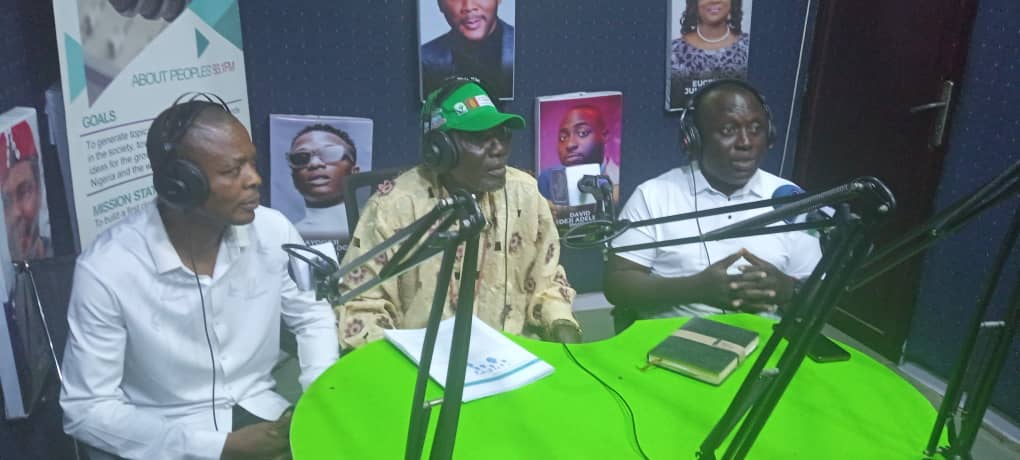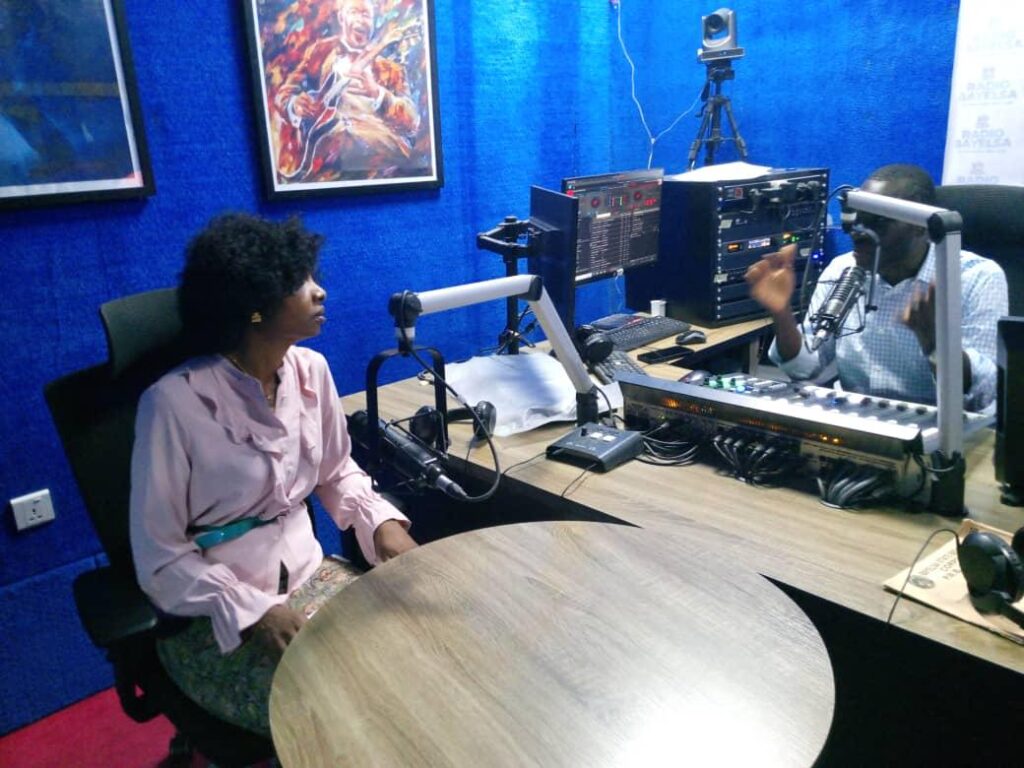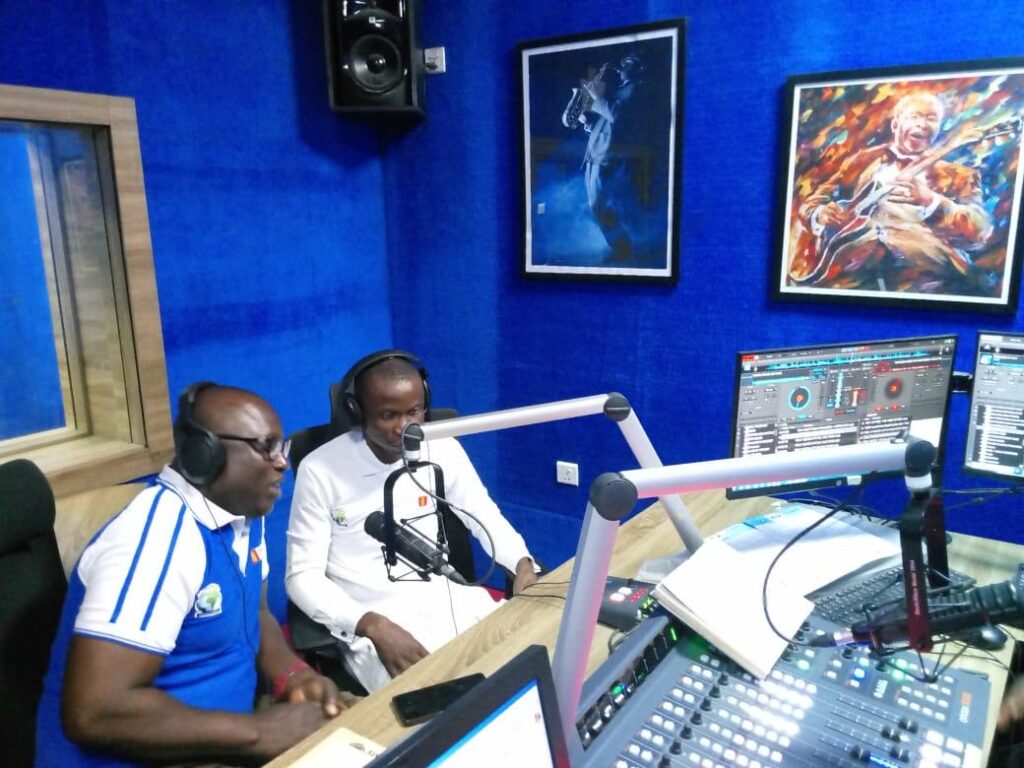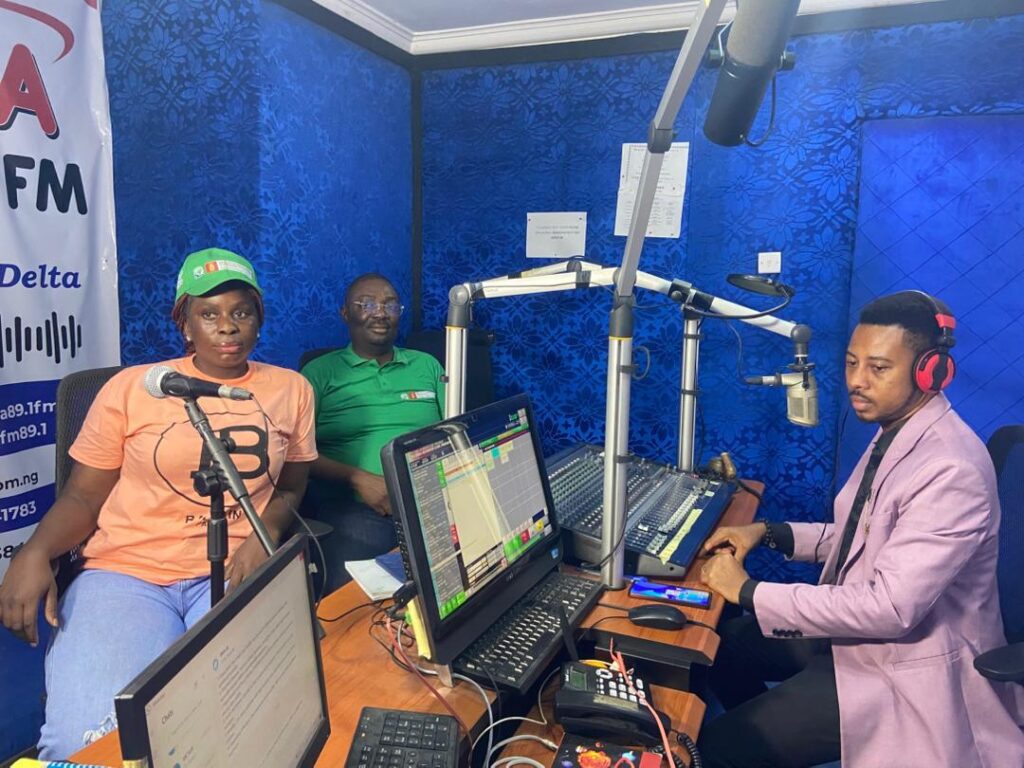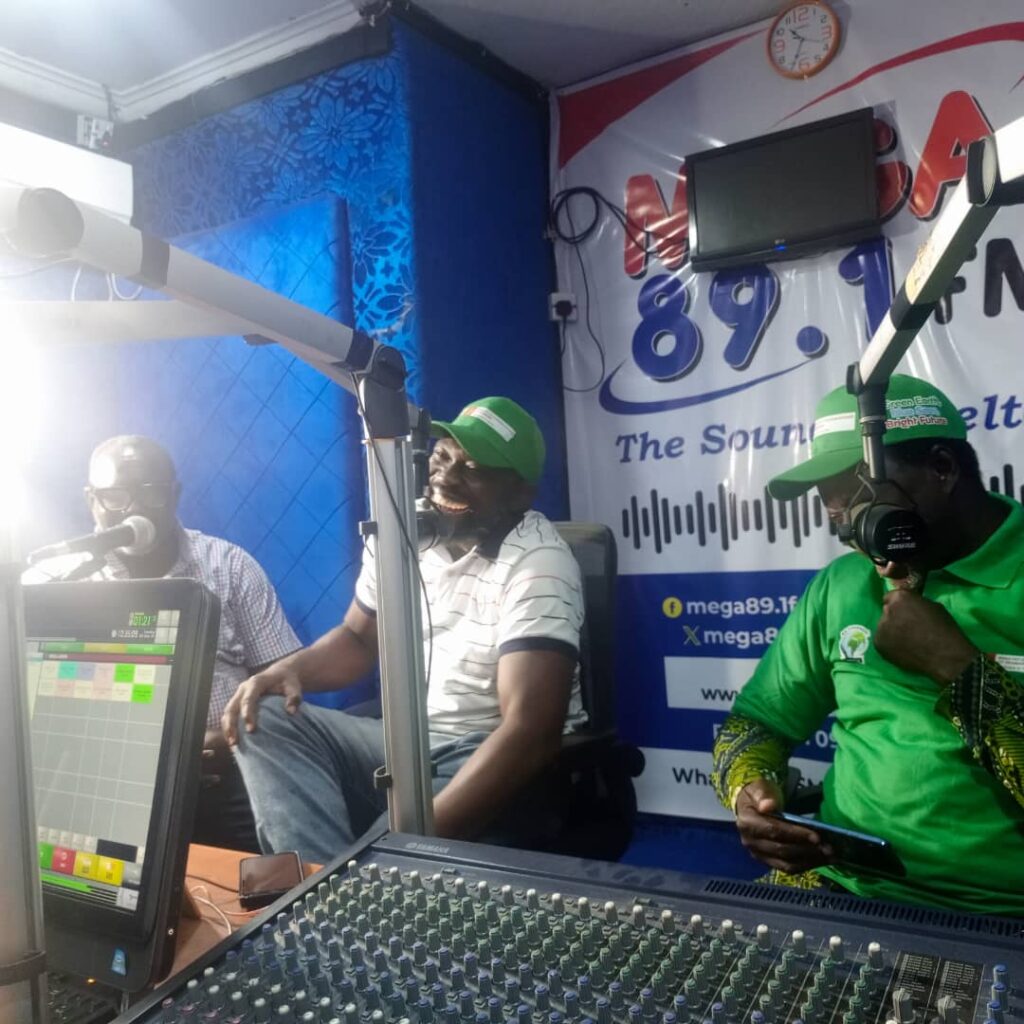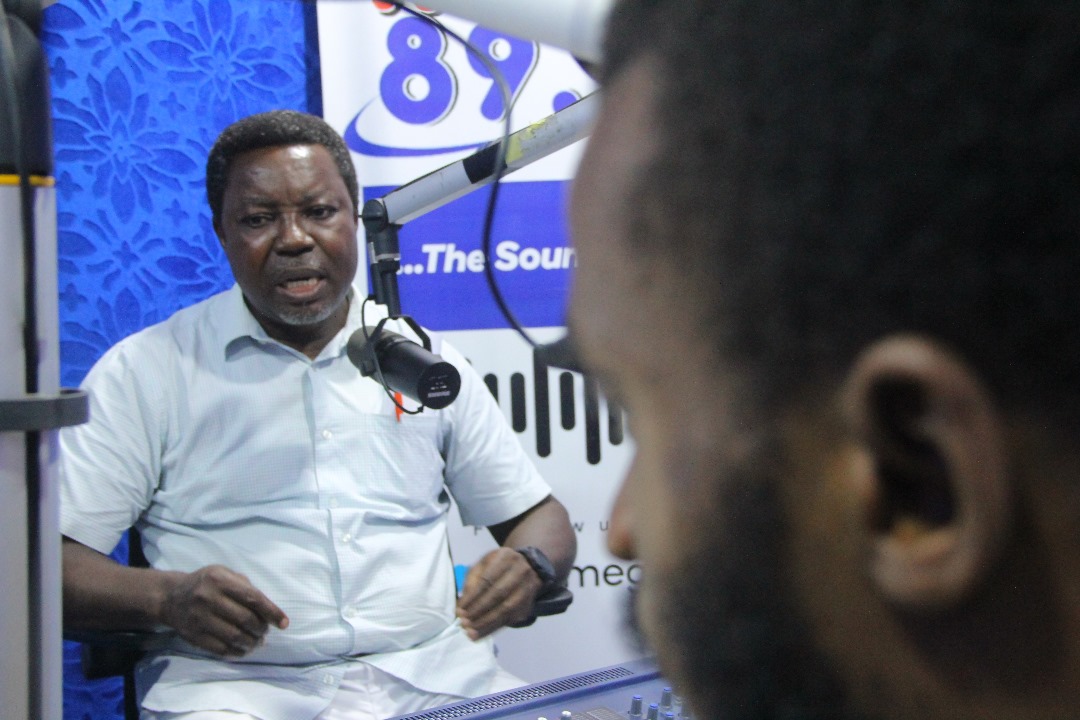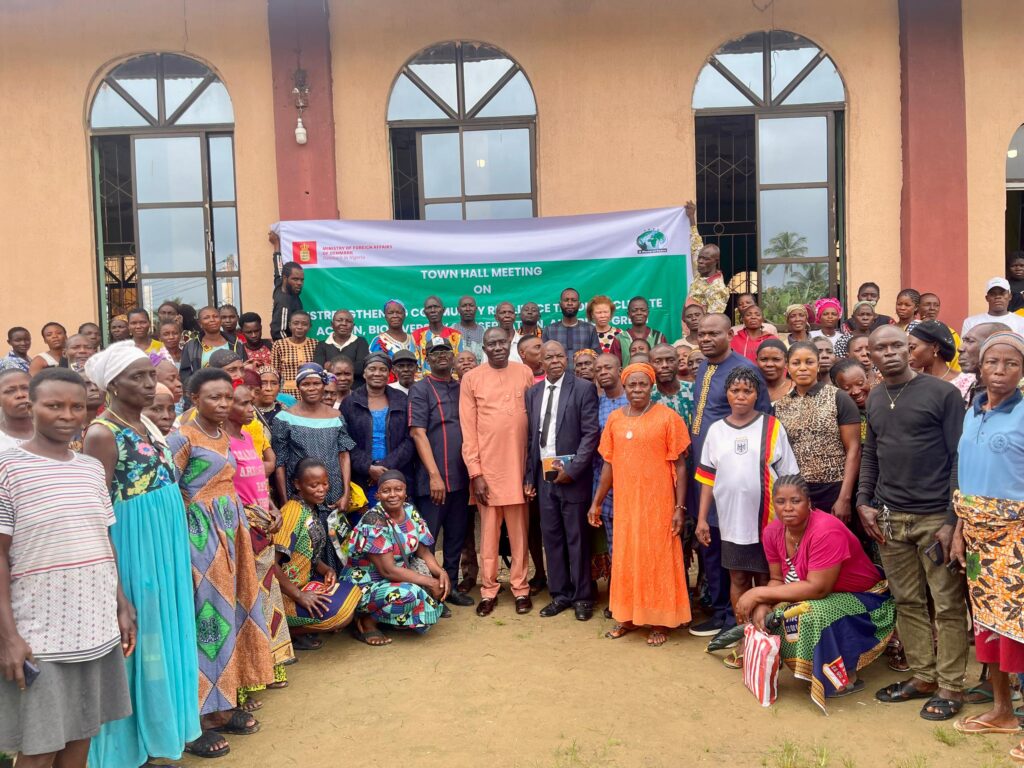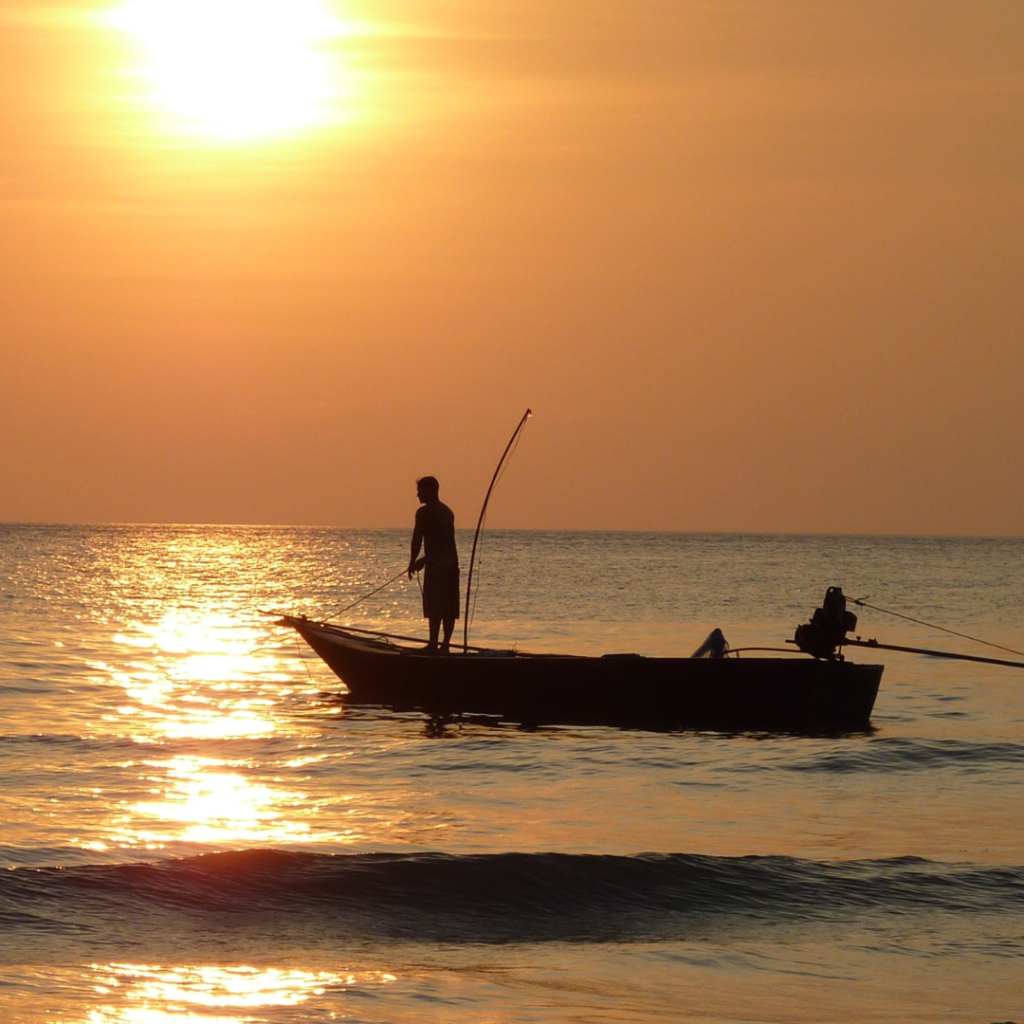AAPW, in collaboration with the Government of Denmark, has continued to raise awareness on critical environmental issues, particularly those affecting project communities in the Niger Delta. This awareness is encapsulated in the 24 radio talk shows that have drawn attention to local climate-related concerns and sustainable ecological practices. Each episode featured insightful discussions led by resource persons who are experts in environmental sciences, climate policy, and community development.
About the Talk Shows
In an era where the effects of climate change are felt across all sectors of society, it is crucial to raise awareness and provide actionable solutions. Over the past months, our series of 24 talk shows, which were broadcast across four (4) radio stations, including Radio Bayelsa 97.1 FM (Glory FM), Peoples’ 93.1 FM, MEGA 89.1 FM, and Kpoko 100.5 FM, in Bayelsa and Delta states, brought together environmental experts, policymakers, local leaders, and community members to discuss climate-related issues affecting our region and beyond.
The shows explored critical themes affecting the Niger Delta, such as:
- Understanding Climate Change: Breaking down what climate change means, its causes, and its global and local implications.
- Green and Blue Economy: Highlighting how the development of sustainable green and blue economies can benefit local communities, improve livelihoods, and protect the environment.
- Energy Transition and Zero Emissions: Discussing the shift to cleaner energy sources, reducing carbon footprints, and embracing zero-emission targets.
- Environmental Preservation: Promoting practical solutions to combat deforestation, coastal erosion, and air and water pollution.
- Community Engagement: Emphasizing the importance of grassroots involvement in advocating for environmental sustainability, particularly among young people.
Through these interactive discussions, we addressed topics such as:
• Bridging Borders: Water, Peace, and Climate Resilience in the Niger Delta
• Sustainable Agriculture Practices for Climate Resilience in the Niger Delta
• The Blue Economy: Harnessing Ocean Resources Sustainably
• Sustainable Fishing Practices and Aquaculture Development
• Mangrove Restoration and Conservation: A Natural Defense Against Climate Change
• Waste Management and Recycling Initiatives in Niger Delta Communities
• Renewable Energy Solutions for Niger Delta Communities
• Climate Change Policy – Advocacy
• Community-Based Climate Adaptation Strategies
• Green Skills and Job Creation in the Emerging Sustainable Economy
• Sustainable Urban Planning and Green Infrastructure in Niger Delta Cities
Each episode is crafted to offer a mix of scientific knowledge, real-life stories, and practical tips.
Key Achievements And Lasting Impacts
Economic Opportunities
The radio shows shed light on sustainable economic opportunities through the green and blue economy, helping communities in the Niger Delta discover ways to utilize natural resources responsibly. Topics such as eco-friendly agriculture, renewable energy, and sustainable fisheries offered listeners insights into new livelihoods and market opportunities that contribute to environmental protection and economic growth.
Policy Awareness and Advocacy
By hosting experts and policymakers, the talk shows significantly raised awareness about environmental policies, regulations, and frameworks at local, national, and global levels. Listeners were informed on how these policies affect their lives and livelihoods, encouraging advocacy for stronger environmental protections, participation in public consultations, and holding leaders accountable for climate action and sustainable development goals.
Behavioural Change
The series fostered behavioural change by educating the public on climate-friendly practices, such as energy conservation, waste reduction, and eco-friendly farming techniques. Listeners were inspired to adopt new habits in their daily lives that reduce their carbon footprint and contribute to a more sustainable environment, encouraging a shift toward greener lifestyles in the Niger Delta.
Environmental Conservation
A key focus of the radio shows was promoting environmental conservation, especially about protecting biodiversity, restoring degraded ecosystems, and preventing pollution. The discussions raised awareness about local conservation initiatives and mobilised community participation in reforestation, coastal cleanups, and wildlife protection, fostering a culture of environmental stewardship.
Urban Planning and Infrastructure
The talk shows highlighted the importance of sustainable urban planning and resilient infrastructure in the face of climate change. By addressing the need for proper waste management, flood control measures, and energy-efficient building designs, the programs promoted ideas for smarter, more sustainable cities and towns, ensuring future growth is aligned with environmental sustainability.
Long-term Resilience Building
By focusing on long-term resilience, the radio series educated communities on strategies to adapt to the changing climate, such as strengthening disaster preparedness and securing food and water resources. The discussions encouraged community-driven solutions to enhance resilience against floods, droughts, and other climate impacts, ensuring that communities are better equipped to handle future environmental challenges.
Increased Awareness and Understanding
The radio talk shows significantly enhanced public knowledge about climate change and its local effects in the Niger Delta. Listeners gained a deeper understanding of the causes and consequences of environmental degradation, the importance of the green and blue economy, and the need for urgent climate action. By simplifying complex environmental issues, the shows made the subject accessible, fostering a more informed public who now better recognizes the threats climate change poses to their livelihoods.
Practical Knowledge and Skills
Through expert interviews and interactive sessions, the radio series provided practical knowledge and solutions for climate change adaptation and mitigation. Listeners learned new farming techniques to adapt to erratic weather, methods to reduce waste and pollution, and strategies for transitioning to cleaner energy. These hands-on insights empower individuals and communities to implement environmentally sustainable practices in their daily lives, fostering resilience against the changing climate.
Community Empowerment and Engagement
The shows acted as a platform for community voices, encouraging active participation in the climate conversation. Call-ins, social media discussions, and community feedback allowed for local issues to be highlighted and addressed. The engagement fostered a sense of ownership among listeners, particularly youths, who are now more involved in environmental advocacy and initiatives. This empowerment has led to a stronger collective will to pursue sustainable development goals, creating a more united and action-oriented community.
The climate crisis is an ongoing challenge, but through awareness and action, we collectively work towards a healthier and more sustainable future. Stay tuned as we continue to champion environmental protection and sustainable development in future programs and community-based initiatives.
